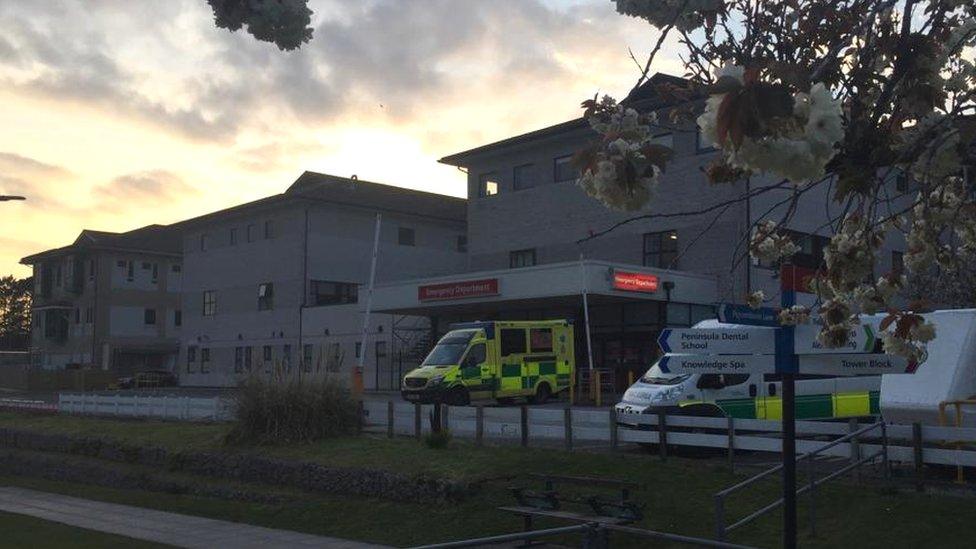Cornwall emergency care under 'extreme pressure'
- Published
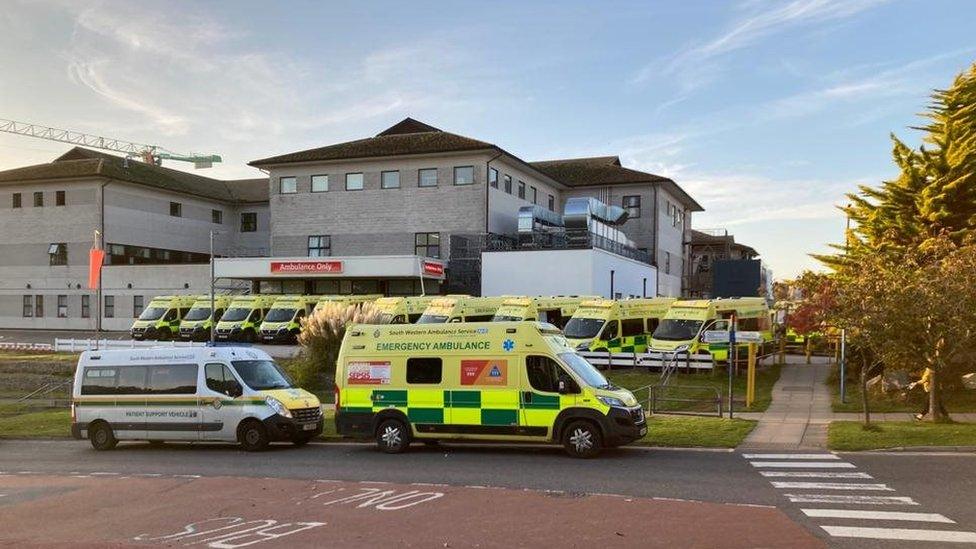
Solving the issue of a lack of carers to provide at-home support would help relieve the pressure on the system, said Kate Shields
Patients are "at risk of harm" as urgent and emergency services are not co-ordinating with each other, the Care Quality Commission (CQC) has found.
It said "significant work" was needed due to "extreme pressure" on services in Cornwall and the Isles of Scilly.
It found services were individually well-run but there was a lack of communication between them.
Cornwall's health boss said services were under pressure and recruitment was a priority.
The CQC was looking at the Integrated Care Systems - partnerships between organisations involved in health and care - which will replace clinical commissioning groups.
It inspected more than 24 individual services across the region.

CQC inspectors found:
Significant delays to treatment across GP care, urgent care, 999 and hospital services
GP practices providing emergency treatment or extended care due to significant delays in 999 responses
GPs reported a shortage of district nurses and a lack of availability in mental health services
Other services were only available in specific geographical areas and during particular times
Urgent care services were available in the community, but some had closed at times due to staffing issues
There was a significant number of people who were medically fit for discharge but remained in hospital as they were awaiting care packages in the community
A care hotel has been established in Cornwall providing very short-term care for people with very low levels of care needs; this is working well for those who meet the criteria for staying in the hotel, however, this is a relatively small number

Amanda Williams, CQC's director of integrated care, inequalities and improvement, said: "Staff across the system have been left feeling exhausted due to increased pressures, which has led to high levels of staff sickness and staff resignations.
"All sectors are struggling to fill vacant posts especially in adult social care.
"Staff shortages in social care across Cornwall, especially for nursing staff, are some of the highest seen in England.
"This had a knock-on effect on the next part of people's journey through the system as it resulted in long delays for people waiting to leave hospital."
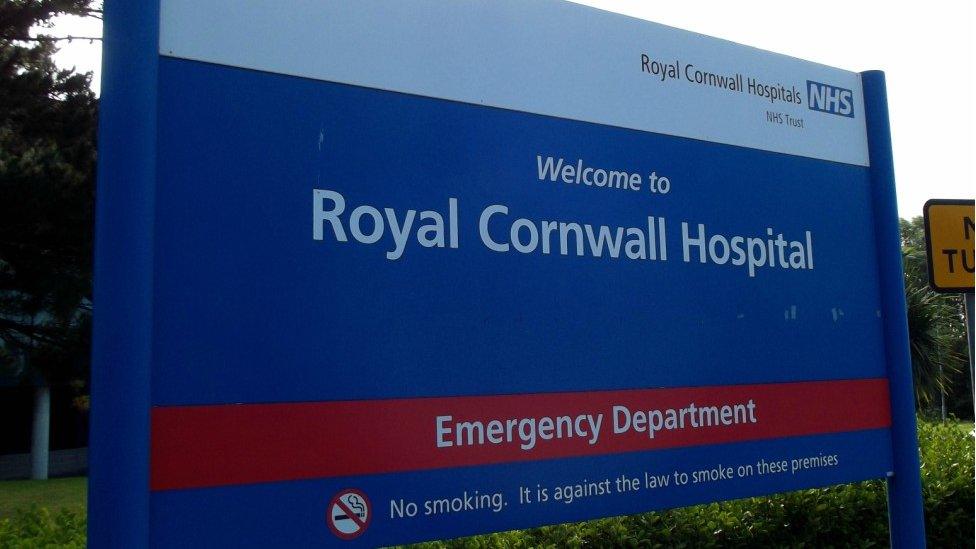
Kate Shields said the CQC's reports of pressure on services and staff was something they were very aware of
Ms Williams said delays in people leaving hospital caused "overcrowding and prolonged waits in the emergency department because of a lack of available beds".
She said: "It also meant ambulance crews were facing long waits to get their patients into the emergency department so they could get back on the road."
Kate Shields, from NHS Cornwall and the Isles of Scilly Integrated Care Board, said: "We've got about 220 people in hospitals who are ready to go home but they need some degree of help or support at home and where we struggle is around the workforce challenge of getting people excited about looking after people in their own homes.
"We're not going to ask people to travel to do that, we'll look at solutions that are based around the place that you live... so we're not asking people to go great distances to do those jobs."
She said developing a new domiciliary care workforce for Cornwall "that is very much based in their localities in which people live - that will make a massive difference" as it would cut Emergency Department queues.

Follow BBC News South West on Twitter, external, Facebook, external and Instagram, external. Send your story ideas to spotlight@bbc.co.uk, external.
Related topics
- Published6 May 2022
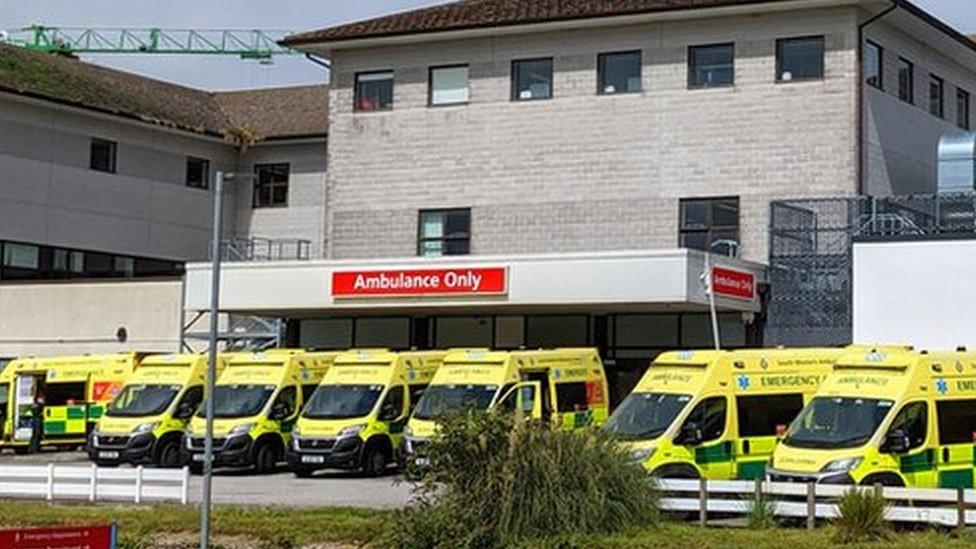
- Published9 March 2022

- Published4 February 2022
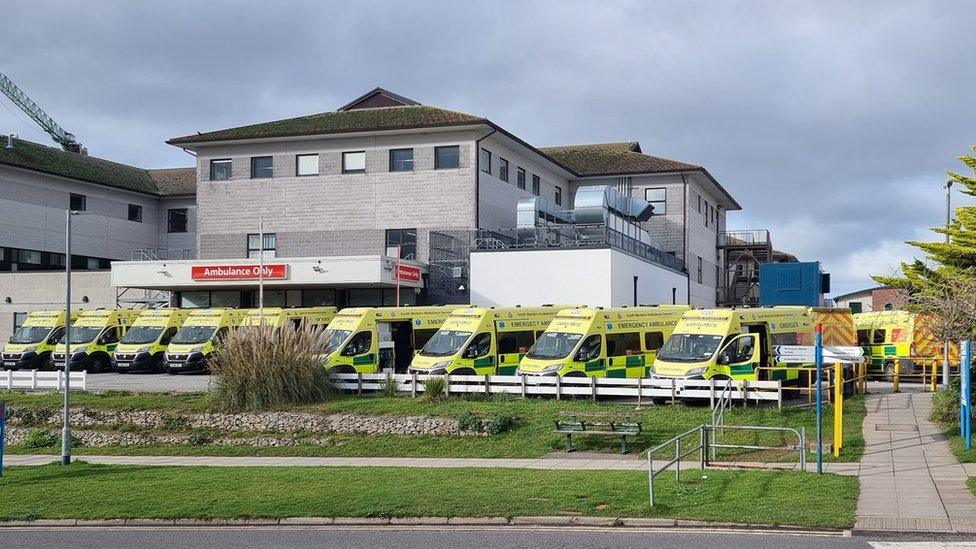
- Published21 January 2022

- Published20 January 2022
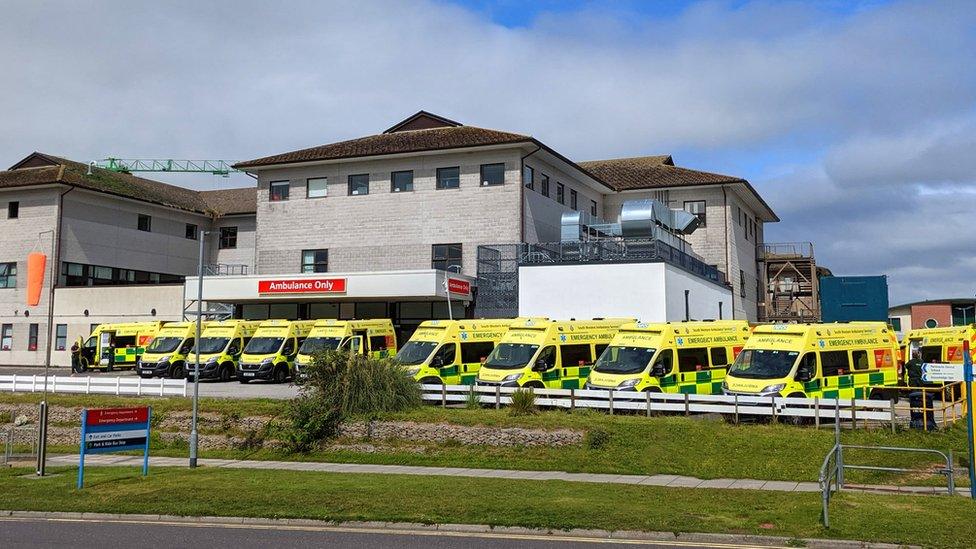
- Published21 January 2022
